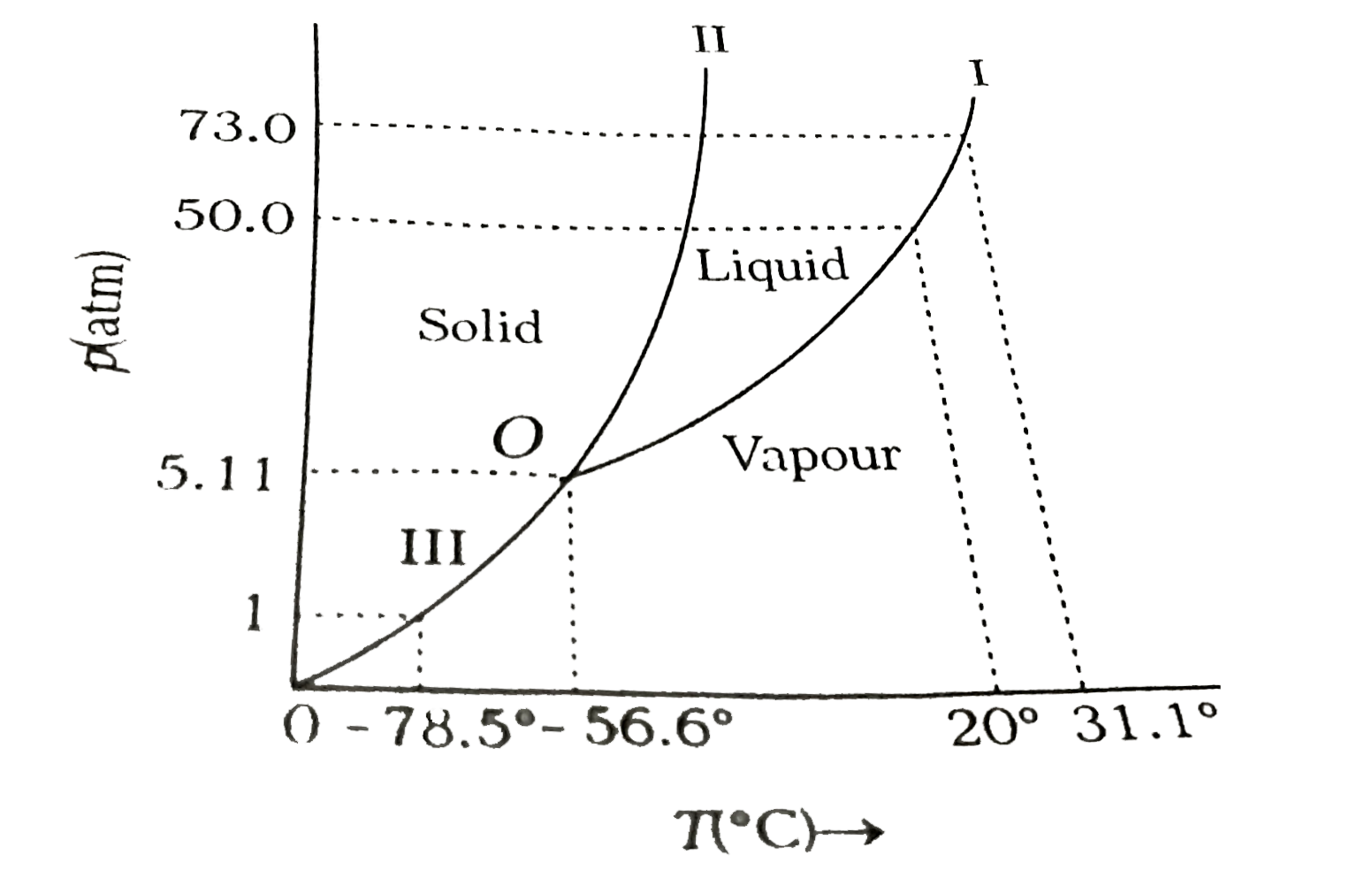What is the effect of pressure on the boiling point and freezing point of water.
Step-by-Step Text Solution:
1. Understanding Boiling Point and Pressure:
- The boiling point of a liquid is the temperature at which it changes from a liquid to a gas.
- When pressure is applied to a liquid, the energy required for the liquid molecules to escape into the gas phase increases.
2. Effect of Pressure on Boiling Point:
- As pressure increases, the boiling point of water also increases. This is because the molecules need more energy (higher temperature) to overcome the increased pressure and convert into gas.
- For example, in a pressure cooker, the increased pressure allows water to boil at a temperature higher than 100°C, which cooks food faster.
3. Understanding Freezing Point and Pressure:
- The freezing point is the temperature at which a liquid turns into a solid. For water, this is typically 0°C at standard atmospheric pressure.
- The freezing point of water is influenced by the pressure applied above the ice.
4. Effect of Pressure on Freezing Point:
- When pressure is applied to ice, the melting point (or freezing point) decreases. This means that ice will melt at a lower temperature when pressure is increased.
- This occurs because the structure of ice is less dense than liquid water; when pressure is applied, it forces the water molecules closer together, making it easier for them to transition from solid to liquid.
5. Conclusion:
- In summary, increasing pressure raises the boiling point of water while lowering the freezing point. This relationship is due to the energy requirements for phase changes and the unique properties of water molecules.
---
- The boiling point of a liquid is the temperature at which it changes from a liquid to a gas.
- When pressure is applied to a liquid, the energy required for the liquid molecules to escape into the gas phase increases.
- As pressure increases, the boiling point of water also increases. This is because the molecules need more energy (higher temperature) to overcome the increased pressure and convert into gas.
- For example, in a pressure cooker, the increased pressure allows water to boil at a temperature higher than 100°C, which cooks food faster.
- The freezing point is the temperature at which a liquid turns into a solid. For water, this is typically 0°C at standard atmospheric pressure.
- The freezing point of water is influenced by the pressure applied above the ice.
- When pressure is applied to ice, the melting point (or freezing point) decreases. This means that ice will melt at a lower temperature when pressure is increased.
- This occurs because the structure of ice is less dense than liquid water; when pressure is applied, it forces the water molecules closer together, making it easier for them to transition from solid to liquid.
- In summary, increasing pressure raises the boiling point of water while lowering the freezing point. This relationship is due to the energy requirements for phase changes and the unique properties of water molecules.
Topper's Solved these Questions
- WATERBOOK - ICSECHAPTER - WATEREXERCISE - TOPIC 1 Water (5 MARKS QUESTIONS)
17 Videos
- WATERBOOK - ICSECHAPTER - WATEREXERCISE - TOPIC 2 Solution (1 MARK QUESTIONS )
15 Videos
- WATERBOOK - ICSECHAPTER - WATEREXERCISE - TOPIC 1 Water (2 MARKS QUESTIONS)
7 Videos
- THE PERIODIC TABLE BOOK - ICSECHAPTER - THE PERIODIC TABLE EXERCISE - TOPIC 2 Studying Individual Groups (5 Marks Questions)
34 Videos
Similar Questions
Knowledge Check
2 g of sugar is added to one litre of water to give sugar solution. What is the effect of addition of sugar on the boiling point and freezing point of water ?
ABoth boiling point and freezing point increaseBBoth boiling point and freezing point decreaseCBoiling point increases and freezing point decreasesDBoiling point decreases and freezing point increases.
What is the effect of the addition of sugar on the boiling and freezing points of water?
View SolutionWhat is the effect of increase in pressure on the boiling point of a liquid ?
View SolutionAnswer the following questions based on the p-T phase diagram of carbon dioxide as shown in the figure .
(i) At what temperature and pressure can the solid , liquid and vapour phases of C02 co-exist in equilibrium?
(ii) What is the effect of decrease of pressure on the fusion and boiling point of C02 ?
(iii) What are the critical temperature and pressure for C02 ? what is their significance ?
(iv) Is C02 solid , liquid, or gas at (a) −70∘Cunder 1 atm (b) −60∘C under 10 atm (c) 15∘C under 56 atm ?

View SolutionStandard boiling point of water is
View SolutionWhat is the effect of impurities present in water on melting point and boiling point of water?
View SolutionState the effect of increase of pressure on the melting point of ice.
View SolutionWhat is the effect of dissolved impurities on freezing point of water
View Solution
